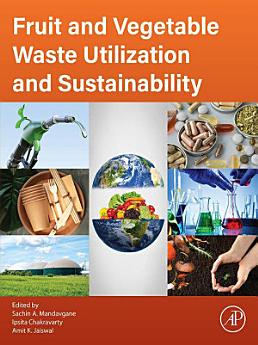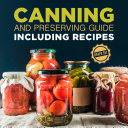Fruit and Vegetable Waste Utilization and Sustainability
About this ebook
About the author
Dr. Sachin A. Mandavgane is a professor and head of the Chemical Engineering Department at Visvesvaraya National Institute of Technology, Nagpur. He obtained his PhD in chemical engineering and authored 125 publications having 3000 citations and has 10 patents in his name. He works on sustainability topics such as agro-waste utilization and life cycle assessment. He mentors six start-ups initiated by his scholars.
Dr. Ipsita Chakravarty is a scientist at Merino Innovation Centre, Visvesvaraya National Institute of Technology, Nagpur. She completed her PhD in biochemical engineering from IIT (BHU), Varanasi, India in 2018. She has authored around 25 publications and has 1 patent in her name. Innovative technologies developed by her for agro-waste valorization and innovative foods have been adopted by industries and start-ups.
Dr. Amit K. Jaiswal is an esteemed academic and researcher currently serving as a Lecturer at the School of Food Science and Environmental Health, Technological University Dublin (TU Dublin)—City Campus, Ireland. Recognised globally for his scholarly contributions, Dr Jaiswal has been recognised among the top 1% of the world’s most cited academics in 2023 and 2024 by Clarivate Analytics, a distinction given to researchers who have demonstrated exceptional influence in their fields over the past decade. In addition, Stanford University has listed him among the top 2% of scientists worldwide for four consecutive years (2021–24). Dr Jaiswal’s research focuses on converting lignocellulosic biomass and algae (micro- and macroalgae) into biofuels, biomaterials, and biochemicals through innovative process development, techno-economic analysis, and life cycle assessment. He brings extensive expertise in bio-based materials, such as lignin and microcellulose/nanocellulose, and their applications in sustainable food packaging, water purification, and adhesives. His proficiency in green extraction techniques, including deep eutectic solvents (DES) and ultrasound-assisted processes, enables the valorisation of agri-food biomass into high-value products. With more than 125 peer-reviewed publications, 50 book chapters, and five edited books, Dr. Jaiswal’s contributions to scientific literature have significantly impacted food science and biotechnology. His work has received over 10,000 citations, with an h-index exceeding 50. He also serves on the editorial boards of key international journals, including Food Quality and Safety (Oxford University Press), Foods, Biomass (MDPI) and JSFA Reports (Wiley).





